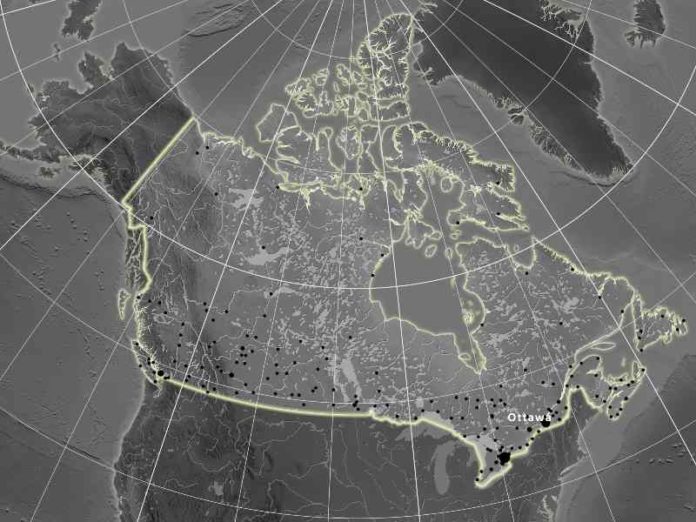
The digital mapping data will support sustainability-related initiatives as part of the Canadian Government’s plan to achieve net-zero emissions by 2050.
By creating a digital representation of the 100 cities, the initiative aims to support municipal stakeholders to better understand and manage their cities.
This will include the acceleration of net-zero initiatives such as rooftop solar installations, tree-canopy coverage assessment and enhanced flood mapping. These standardized maps are also hoped to offer valuable insight for policy and funding programs.
“We’re excited and honoured to be leading the creation of this high-precision 3D map of Canadian cities. This initiative will create the foundation of a digital twin for cities across the country – providing data that will help support smart, safe, sustainable communities,” stated Jon Lipinski, president and co-founder of Ecopia AI.
Ecopia will leverage its AI-based mapping systems to mine high-resolution multi-view aerial imagery, producing the high-precision 3D vector map of the top 100 cities.
The resulting map will offer an accurate digital representation of every building, road, bridge, railway, driveway, sidewalk, parking lot, swimming pool, sports field, waterbody, forest, grassland, bare land and paved area across each city.
The cities of Thunder Bay and Windsor are consortium partners on the project and will be at the forefront of deploying these maps for sustainability-related applications. In addition, Ecopia will be offering each of the 100 municipalities a 2-year license to the data to help support immediate action toward climate resilience initiatives.
“Canadians across the country are part of the solution in fighting the climate crisis and Ecopia is seizing the moment and doing their part. Our government knows that when investments in science, technology and innovation are paired with ambitious and talented Canadian entrepreneurs, it drives the breakthroughs we need to fuel a more resilient and sustainable future for everyone,” stated The Honourable François-Philippe Champagne, minister of innovation, science, and industry.
“Big data plays a vital role in achieving and maintaining optimum environmental sustainability. With this funding, SDTC is proud to help Ecopia optimise their data solution, paving the way for bigger market opportunities and greater sustainability,” added Leah Lawrence, president and CEO of SDTC.
Digital maps serve as the foundation for many applications that help facilitate economic growth, community development and climate resilience.
However, according to Ecopia, Canada has historically operated without a high-precision, uniform digital representation of its cities. The creation of such a map is thus stated to offer an opportunity to increase the efficiency and accuracy of decision-making within cities and across the nation – with applications spanning government, insurance, telecommunications, transportation and public safety.